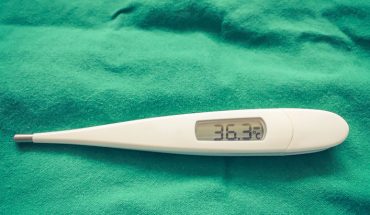How to Keep Your Kidneys Healthy When You Have Diabetes: Diabetes is a chronic disease that, when not properly managed, can cause a multitude of health complications. One of the most common problems that can arise from diabetes is diabetic kidney disease, which occurs when the body’s high blood sugar level damages the nephrons and blood vessels in the kidneys.
The primary function of the kidneys is to remove waste from the blood and return the clean blood to circulate throughout the body. If you have diabetes, your condition might prevent your kidneys from working properly. This can result in difficulties expelling toxins and impurities from your bloodstream.
To help keep diabetes symptoms in check and promote excellent kidney health, here are a few key tips:
Eat Healthier Meals
Maintaining a well-balanced and nutritious diet is a great way to support and minimise strain on the kidneys. Include fruits, vegetables, and whole grains in your daily meals to regulate your blood sugar levels. You can also incorporate more lean proteins, such as fish and poultry, while limiting saturated fats found in processed foods. This can lower your cholesterol and control your insulin resistance.
It’s also advisable to control your portion sizes and spread your meals throughout the day. This strategy will assist in better glucose management and improve kidney function.
Cut Back on Salt
Lowering your salt intake is crucial in safeguarding kidney health, especially if you’re also managing the effects of diabetes. High blood pressure, which can exacerbate kidney complications, is often associated with excessive sodium consumption. It’s good to develop a habit of reading food labels to identify and avoid hidden sources of salt.
Another healthy and effective way to reduce your sodium consumption is to flavour your meals with herbs and spices instead of salt. By curbing your salt intake, you’re taking a significant step towards preserving your kidney function.
Stay Hydrated
Water helps your kidneys flush out waste products and maintain proper electrolyte balance. Simply put, adequate hydration is crucial for kidney health. It also keeps your kidneys functioning properly and helps control blood sugar levels. Do your best to drink at least eight glasses of water per day; that said, keep in mind that the amount of water you drink may change depending on factors like climate and physical activity.
Exercise Regularly
Incorporating regular physical activity into your routine can aid in weight management, as well as contribute to improved blood circulation and overall cardiovascular health. Engaging in activities like brisk walking, swimming, or cycling can also help regulate blood sugar levels, reducing the risk of diabetes complications that may affect the kidneys. Aim to do at least 150 minutes of moderate-intensity exercise per week. However, if you’re just starting, you can take things slow so as not to injure yourself.
Include Fish Oil Into Your Dietary Routine
Omega-3 fatty acids have anti-inflammatory properties that may contribute to overall kidney health. You can get generous amounts of omega-3 fatty acids from fish oil. Before adding fish oil supplements to your regimen, however, it’s advisable to first consult with a healthcare professional. This will help determine the appropriate dosage and ensure compatibility with your overall health plan.
Quit Your Vices
Smoking and excessive alcohol consumption have a negative impact on multiple parts of the body, including the kidneys. Smoking is known to accelerate kidney damage, worsen existing conditions, and elevate your blood pressure, adding another layer of risk for those already managing diabetes. Alcohol, on the other hand, can lead to dehydration and high blood pressure, when consumed in excess.
For these reasons, quitting smoking and moderating your alcohol intake are essential steps in preserving kidney health. Needless to say, quitting your vices isn’t always easy. If needed, seek support from healthcare professionals or support groups to overcome these vices.
Monitor Your Blood Sugar Levels Consistently
Fluctuations in your blood sugar levels can directly impact the kidneys, leading to eventual complications. Thus, it’s important to monitor your blood sugar consistently to identify patterns that severely increase or decrease your blood sugar levels. This allows you to make the necessary adjustments to your treatment plans or diet and keep your blood sugar levels stable, significantly reducing the risk of kidney damage associated with uncontrolled diabetes.
Don’t Miss Any of Your Medical Appointments
Attending your medical appointments without fail is pivotal to managing your diabetes and improving kidney function. When you visit your healthcare provider, they can conduct proper tests to assess your overall health. They can also give you some insight into how well you’ve managed your diabetes, as well as provide you with more tips on how to take better care of your kidneys. Working collaboratively with your healthcare team will make it easier to identify and address any emerging health problems associated with diabetes before it’s too late.
When you have diabetes, taking good care of your kidneys becomes even more important. With these practical steps guiding you to the right path, you can ease into your new lifestyle and live a happier and healthier life.
- Shake-up of services needed to ease fibromyalgia pain - 9th December 2025
- Continuous glucose monitoring reduces risk of excessive birth weight - 9th December 2025
- Significant mental health benefits of adult-worn slings - 9th December 2025







